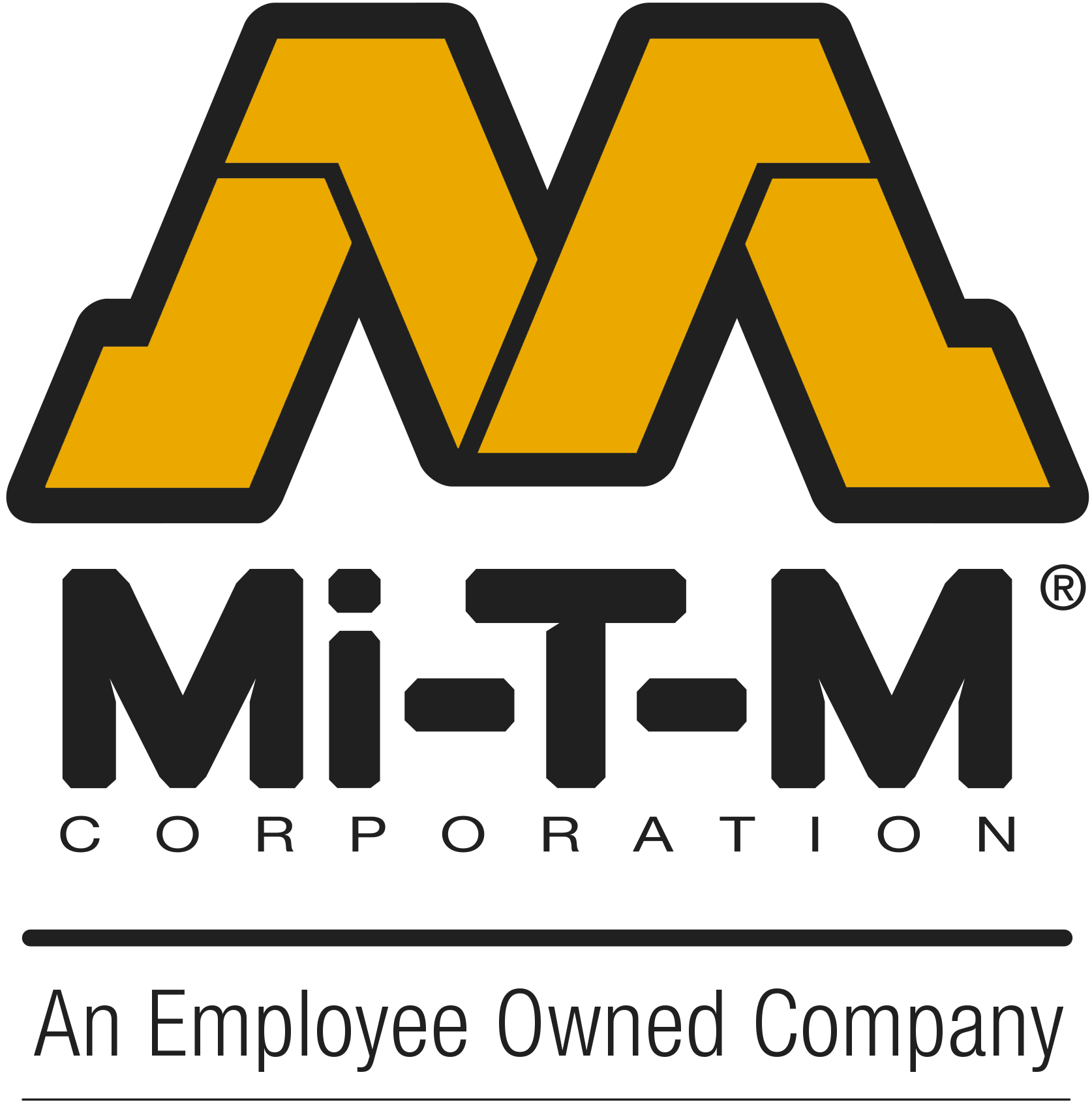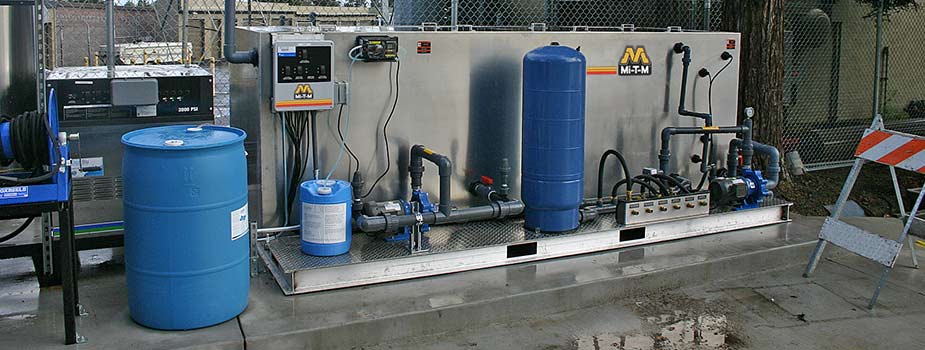
You can start sizing the system by asking these questions:
- How much water do you need to treat in 24 hrs?
- Do you discharge to sewer or will you recycle the water?
- What will you remove from the wastewater?
Mi‑T‑M offers several water treatment systems to meet your needs.
- Biological (BIO) Treatment Series can be used either as a discharge or closed loop system. Microbes consume contaminates in the wastewater turning them into carbon dioxide and water.
- Mechanical Filtration (WLP & WCP) Series uses sand filtration to remove particulates down to 25 microns. A cartridge filter may be added to filter to 30 microns.
- Water/Oil Separator (WOS & WCL) Series uses oil attracting (oleophilic) media that separates the oil and floats it to the surface where an oil skimmer sends the oil to a decanter for easy removal.
If you have access to a sanitary sewer you have the option of using a discharge system. Our system is meant to remove contaminates down to a reading that should be acceptable to local parameters. (Parameter settings are not the same everywhere. Check with your local municipality)
If you don't have access to a sanitary sewer, you will then need a closed loop system that removes contaminates so the water is recycled for pressure washing.
It all depends on the system. Water oil separators require the least amount of maintenance as only one pump is involved, whereas mechanical filtration requires more (additional pumps, media filters, slide valves, pH/orp meters, and timers). Biological treatment is also a low maintenance system. Standard pump maintenance and coalescing media cleaning is all that is required.
Odor can be handled a few different ways.
- Ozone is an efficient way of handling odor. It is a quick kill of live bacteria. We introduce ozone on our Biological Series through a pump via a Mazzei injector into the product tank. (Note: ozone is harmful to microbes so it needs to be introduced where they are not present, such as a product tank).
- BPS-120M (Biological Pit System) is another method for treating odor problems. Generally used in an existing pit, two linear air pumps provide aeration to the pit where microbes can be injected. A germicide can also be injected into the pit by two peristaltic pumps.
Definitely not!
Remember, sometimes we rely on living bacteria to reclaim the water. There are many substances that will create problems or interfere with their ability to remove contamination. Acids or caustic materials shorten the systems operational life as well as kill the important microbes. In high volumes animal and vegetable derived fat, oil, and grease (cooking oil, fat poured off cooked meat, etc.) can cause problems. It can block your drains and also take the microbes a long time to "eat" this material.
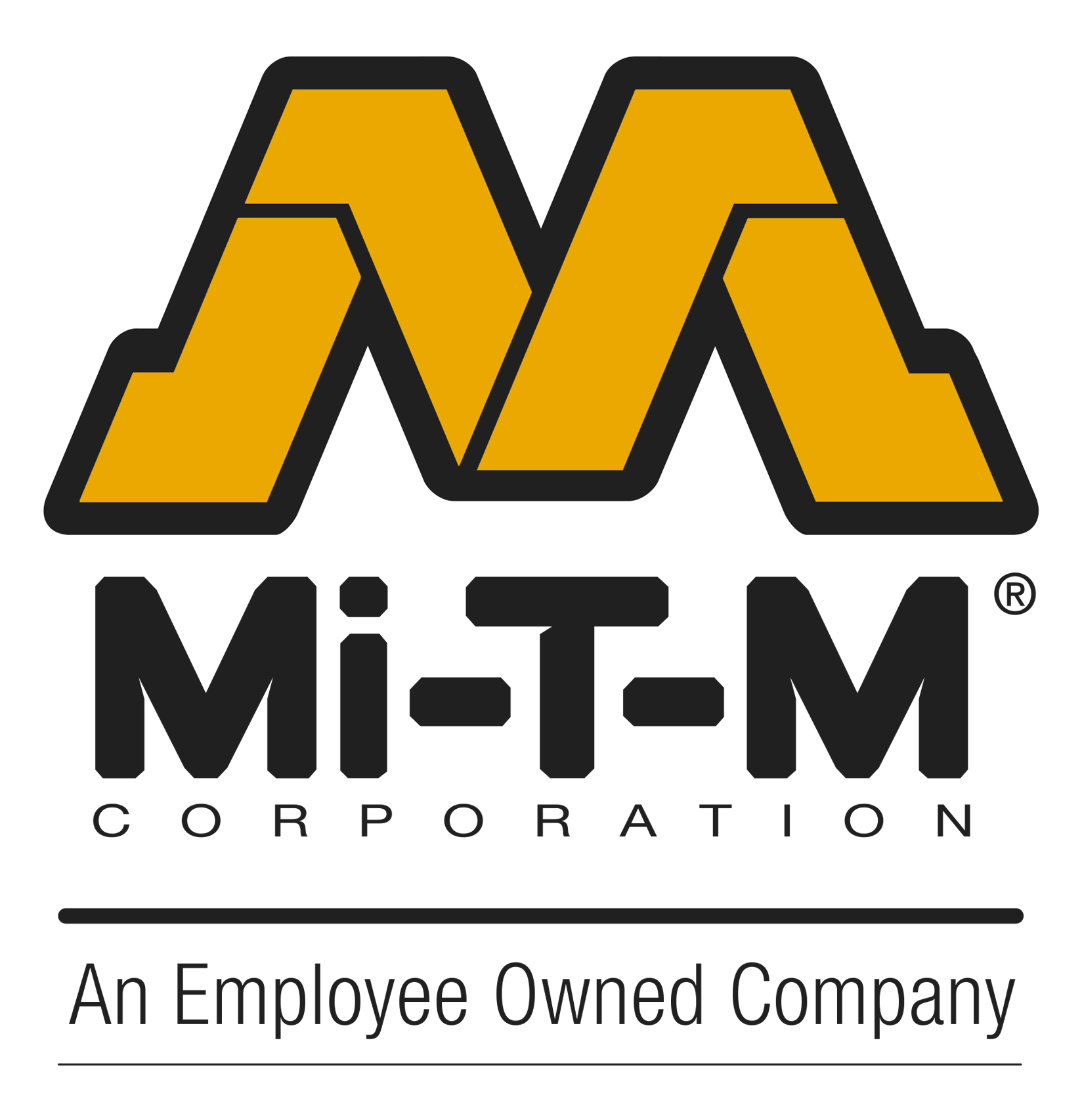



 Latest Equipment
Latest Equipment
 Accessories
Accessories
 Pressure Washers
Pressure Washers
 Air Compressors
Air Compressors
 Generators
Generators
 Air Compressor Generators
Air Compressor Generators
 Air Compressor / Generator / Welders
Air Compressor / Generator / Welders
 Portable Heaters
Portable Heaters
 Water Treatment Systems
Water Treatment Systems
 Trailers
Trailers
 Water Pumps
Water Pumps
 Wet / Dry Vacuums
Wet / Dry Vacuums
 All Residential Products
All Residential Products
 All Commercial Products
All Commercial Products
 Pressure Washers
Pressure Washers
 Generators
Generators
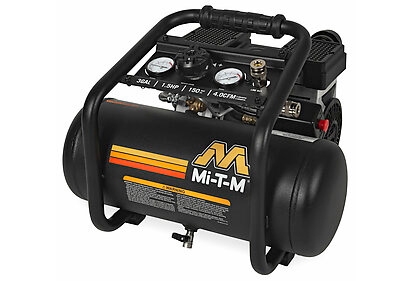 Air Compressors
Air Compressors
 Custom Fire Pits
Custom Fire Pits
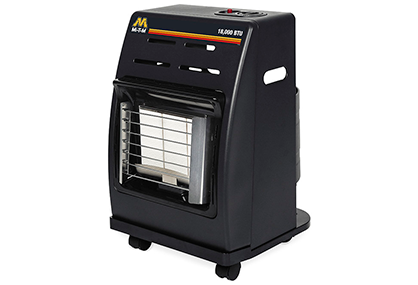 Portable Heaters
Portable Heaters
